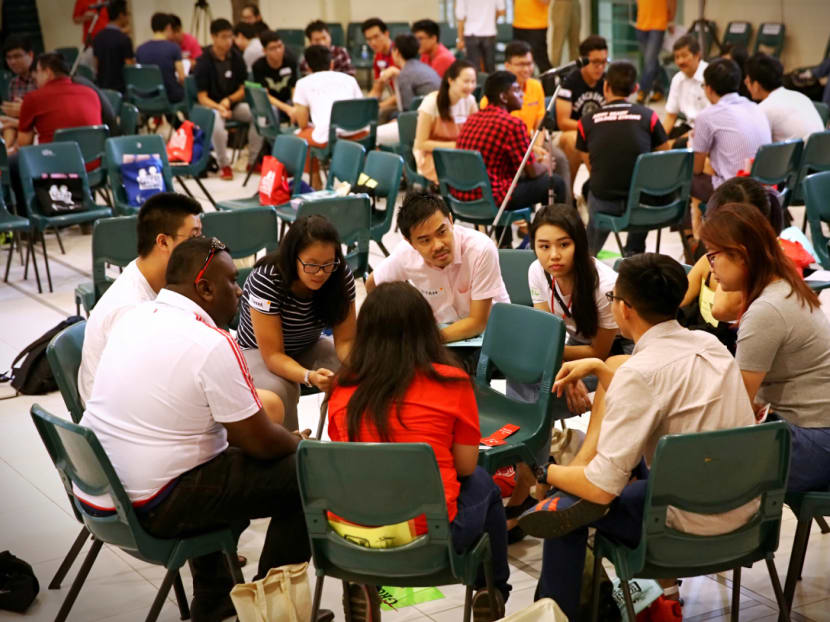Young people not ‘entirely confident’ in handling life’s challenges: Survey
SINGAPORE — Local youths are not entirely confident they can handle life’s challenges. They are also worried about the future and the challenges they will face as adults, the latest National Youth Survey has found.

The survey included an indicator to measure youths’ resilience in the face of challenges. TODAY file photo
SINGAPORE — Local youths are not entirely confident they can handle life’s challenges. They are also worried about the future and the challenges they will face as adults, the latest National Youth Survey has found.
Some 3,531 youths aged 15 to 34 were surveyed by the National Youth Council (NYC) between October and December last year, and the results were released on Friday (July 14).
For the first time, the survey, which is conducted every few years, included an indicator to measure youths’ resilience in the face of challenges.
Respondents were asked to rate on a five-point scale questions such as whether they tend to bounce back quickly after hard times. The average score attained was 3.29, which indicated they were not entirely confident about their own ability to respond to challenges.
NYC chief executive officer David Chua said the results were “not surprising” given the emotional tension young people have to grapple with in today’s world. “There is a hard dilemma of navigating between the realm of what’s possible — which their eyes are open to through their mobile phones, going online and travelling — and ... this whole set of realities, of what’s pragmatic in Singapore,” he said, adding that these realities are often informed by the individual’s parents and society.
“So they will be bouncing back and forth, and it (affects) their sense of confidence about their future, their expectations ... and their resilience,” he added.
Explaining the reason for including the new resilience indicator, Asociate Professor Ho Kong Chong from the Department of Sociology at the National University of Singapore (NUS) said: “The pathways to adulthood after school (now) are not as clear as 20 years ago, so we really need to understand how young people navigate these kinds of things.
“We also need to understand whether young people can bounce back from setbacks because we live in a more uncertain world, and setbacks will surely be there.”
Consistent with findings in 2010 and 2013, the survey also revealed that young people are worried about the future and responsibilities they will have to assume as adults.
“Future uncertainty” ranked as their biggest source of stress, with “studies” coming in second and “emerging adult responsibility” in third place.
Fresh graduate Tan Yuanning is among those who find adult life “overwhelming”, having just graduated from NUS and is in the midst of applying for a flat with her boyfriend of five years.
“It’s like you’re suddenly confronted with so many things that you have to research and do yourself, when previously all of these were taken care of by your parents,” the 22-year-old said.
Among the more positive findings in the survey is the fact that young people have increasingly more diverse friendships, with 60 per cent of those surveyed having close friends of a different race, up from 53 per cent in 2013.
Despite an increase in time spent online — with 42 per cent of them spending 10 hours or more on online activities, compared with 35 per cent in 2013 — the poll found that youths spend the most time with family, among other activities, outside of school and work.
However, the perceived necessity of marriage has dipped, with 31 per cent of young people agreeing that it is not necessary to marry, a significant increase from 17 per cent in 2010 and 25 per cent in 2013.
Meanwhile, national pride has increased, from 3.18 in 2013 to 3.37 on a four-point scale.
It is the fifth time the survey is conducted, with previous surveys done in 2002, 2005, 2010 and 2013, said the NYC.






